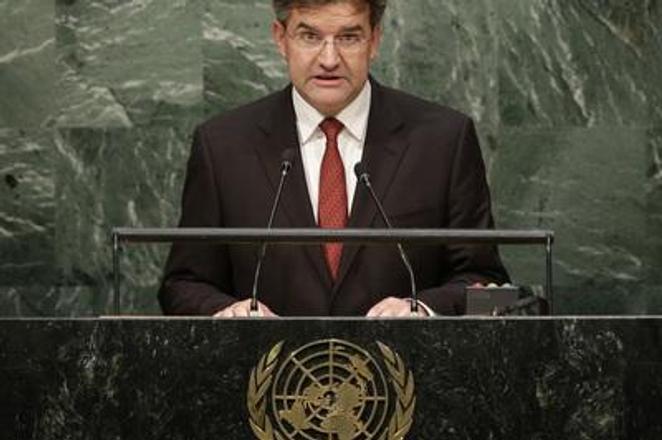These new challenges include pandemics, climate change, migration, cyber-security, terrorism and organised crime, according to Lajčák.
“These threats concern each and every one of us. There are no exceptions,” said Lajčák, as quoted by TASR, adding that the right place to address and solve these problems is the United Nations. “I am deeply convinced that the United Nations remains strategically positioned to provide leadership and an effective multilateral response. ”
The Slovak minister went on to say that a strong and effective United Nations means a better world, “a more caring and accepting world, a world, in which nations, peoples of different religions, culture and history can live together in peace”.
“I believe that strengthening of the UN is the best investment to achieve the universal desire for peace, development, equality and justice in the world,” said the Slovak minister.
Therefore, the international community should collectively seek practical means to enable the current system to live up to its original purposes, said Lajčák.
“Every country – big or small, from North or South, landlocked or an island - has an important individual responsibility and role to play as a driver of the change,” stated Lajčák, adding that Slovakia has strong confidence in the United Nations and remains ready to shoulder its responsibility and commitments.
At the same time the global security environment has never been as dynamic and uncertain as today, said Lajčák, pointing out that “the number of major civil wars has almost tripled, the volumes of battle deaths have skyrocketed, while the most worrisome fact is an increased number of civilian casualties, including women and children”.
A secondary effect of this is a dramatic increase of the number of refugees, pointed out Lajčák and added that the World Bank estimates that roughly one fifth of the world’s population is affected by some form of violence or insecurity.
“The total number of people forcibly displaced by war, conflict and persecution rose to roughly 60 million at the end of 2014. We are confronted, on a daily basis, with the gruesome images in the news or directly in our streets, squares and ports of transportation. Forced displacement has sadly become a deliberate and widespread tactic, meaning displacement is not only a short-term humanitarian problem, but also a long-term development and state-building issue, ” stated Lajčák.
The minister described the current migration crisis as one of the most complex challenges to „be faced and addressed together”.
“We must offer our assistance to those in need and prevent further tragedies involving refugees. For that to happen, we need a systematic and comprehensive action, close cooperation of countries – both of origin and of destination – that will bring a long-term sustainable solution…We must address the root causes of migration: conflicts, intolerance, violence, poverty, lack of conditions for decent life - just to mention a few of them, ” stated Lajčák.
Addressing the climate change, Lajčák pointed to extreme droughts, melting of polar ice, substantive changes in long-term climate patterns and increase in the ocean level, among other things.
“Slovakia is committed to adopting at the UN climate conference this December a meaningful and fair global climate agreement that will accelerate a shift to a low-carbon, climate-resilient economy worldwide, ” promised Lajčák.



 Slovak Foreign and European Affairs Minister Miroslav Lajčák (source: Seth Wenig / TASR)
Slovak Foreign and European Affairs Minister Miroslav Lajčák (source: Seth Wenig / TASR)